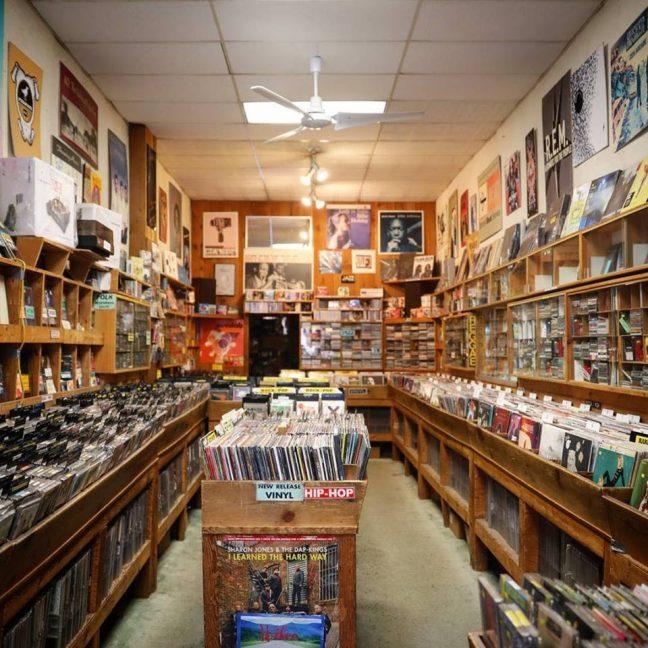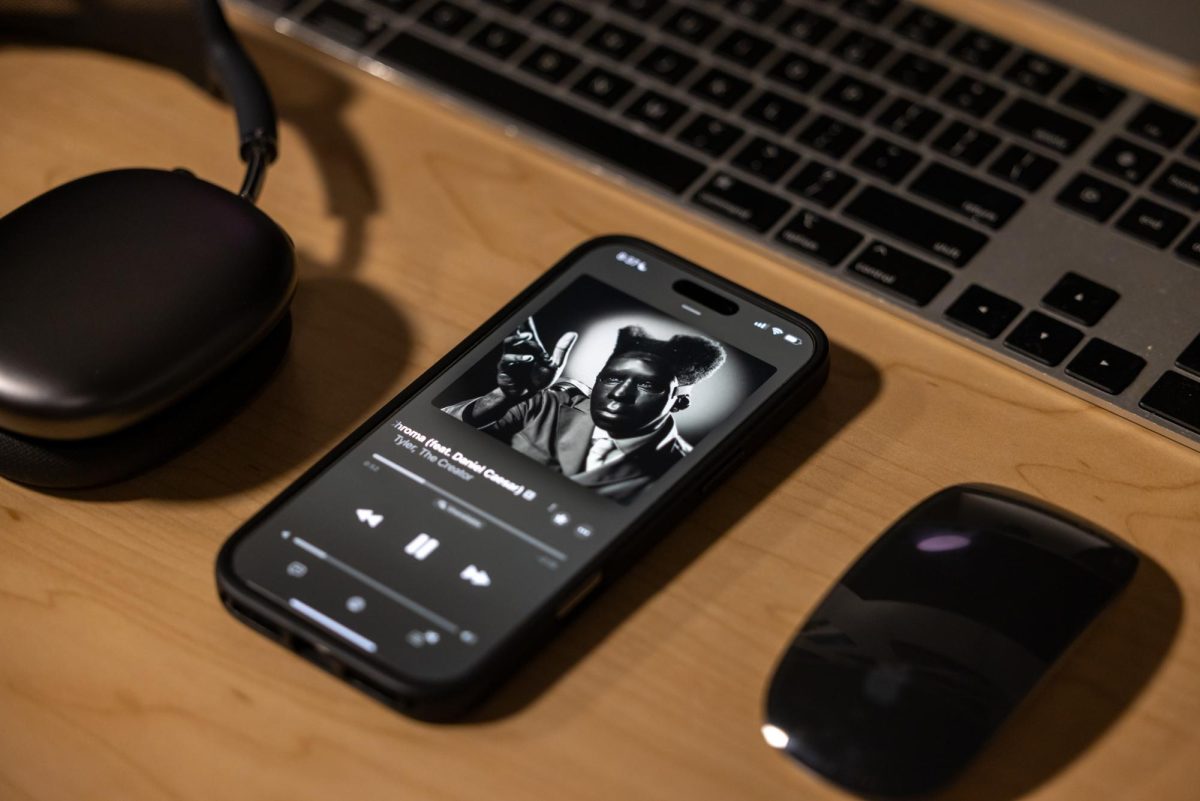Walking down Madison’s most trafficked street, there is a store that might be missed by the average passerby. Its exterior is simple with a blue neon sign reading “B-Side Records,” but most people know little about the decades of music history seen by State Street’s last surviving music shop.
B-Side Records was opened on State Street in the fall of 1982 by two graduates from the University of Michigan. The partners, Ralph Cross and Dan Jenkins, worked together at the Ann Arbor record store Schoolkids Records and dreamed about opening their own store upon graduation.
In 1983, Madison Area Technical College student Steve Manley was one of B-Side’s most loyal customers, later becoming one of the first people to be placed on B-Side’s payroll. Within a year, he worked his way up to manager. Just under 15 years ago, Cross and Jenkins fulfilled their long term promise and sold their share of the store to Manley.
Today, the store looks similar to the way it was back then, with vintage posters at eye-level and the 700-square-foot space filled with custom wood bins. One difference, however, is stocks back then consisted exclusively of vinyl LPs and cassette tapes up until the CD revolution in the 90s. CD’s seemed to take over B-Side’s inventory, becoming the dominant format at the expense of vinyl.
“There was almost no interest in vinyl records in the ’90s when CDs were king,” Manley said.
According to Manley, many record store owners thought the vinyl format was dead. That was, until around 12 years ago when Record Store Day was formed by a few enterprising record shop owners. The movement coordinated with record labels to produce limited-edition vinyl records offered on RSD day in April.
Manley was skeptical at first, but with increasing success each consecutive year, he had to accept the significant momentum it was creating.
“I believe RSD was instrumental in increasing awareness for record stores as a culture hub in their communities, as well as renewing interest in the vinyl format with young people, which is our primary clientele once again,” Manley said.
Grammys: Billie Eilish wins big on night clouded by scandal, grief
Recently though, a new competitor to record stores has emerged — streaming services. The rise of Spotify, Soundcloud and other services have once again created a threat to the future of music shops. This threat does not reach die-hard music fans and vinyl collectors, of which B-Side’s most loyal customers consist of.
Though much of B-Side’s client base consists of vinyl revivalists and collectors, CDs are still going strong in the market.
“For us in 2020, CDs represent about 35 percent of our [dollar] sales while vinyl is about 65 percent,” Manley said. “B-Side has always been a place for collectors to pick up new releases every week, plus we try to cater to the tastes of music nerds who collect more obscure but critically-acclaimed albums.”
According to Manley, this is at the very heart of B-Side and the meaning behind their slogan “music of lasting value.” This involves going beyond exclusively top-40 artists or “flavor of the month” hits in their collections to cater toward their serious music fan base.
B-Side Records does not just serve as a function for music collectors, but also serves a unique purpose in the greater Madison community. Over the years, B-Side has been a hub and loyal promoter for local artists.
“We carry a large selection of locally-produced albums by local artists, who are always welcome to use us as an outlet,” Manley said.
For bigger store events, such as Record Store Day, B-Side makes use of Peace Park, which sits nearby the store, to have local artists play.
The community has shown their appreciation for B-Side and Manley’s work over the years, most notably a few years ago when Manley got into a bicycling accident that rendered him unable to work for several months. Manley, at the time of the accident, clocked more than 75 hours a week at his business sometimes. The industry then was not in the position to sustain any full-time employees.
Manley said his family launched a GoFundMe so he could recover at home while keeping the shop open and paying employees.
A final count by the Wisconsin State Journal put the total of donations received at $25,000 from over 600 individual contributors.
“The B-Side community of supporters overwhelmingly came out of the woodwork and essentially saved the business from collapse,” Manley said.














